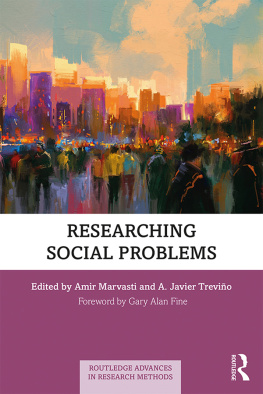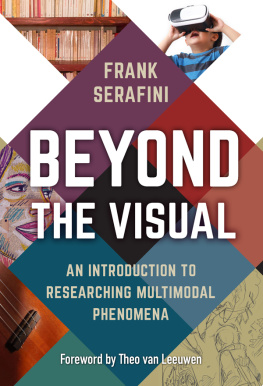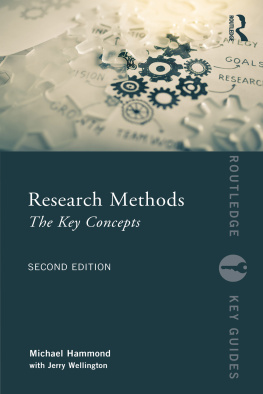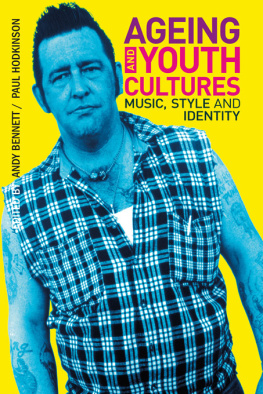Researching Young
Peoples Lives
Researching Young
Peoples Lives
Sue Heath, Rachel Brooks, Elizabeth Cleaver
and Eleanor Ireland

Sue Heath, Rachel Brooks, Elizabeth Cleaver and
Eleanor Ireland 2009
First published 2009
Apart from any fair dealing for the purposes of research or private study, or criticism or review, as permitted under the Copyright, Designs and Patents Act, 1988, this publication may be reproduced, stored or transmitted in any form, or by any means, only with the prior permission in writing of the publishers, or in the case of reprographic reproduction, in accordance with the terms of licences issued by the Copyright Licensing Agency. Enquiries concerning reproduction outside those terms should be sent to the publishers.
SAGE Publications Ltd
1 Olivers Yard
55 City Road
London EC1Y 1SP
SAGE Publications Inc.
2455 Teller Road
Thousand Oaks, California 91320
SAGE Publications India Pvt Ltd
B 1/I 1 Mohan Cooperative Industrial Area
Mathura Road
New Delhi 110 044
SAGE Publications Asia-Pacific Pte Ltd
33 Pekin Street #02-01
Far East Square
Singapore 048763
Library of Congress Control Number: 2008932441
British Library Cataloguing in Publication data
A catalogue record for this book is available from the
British Library
ISBN 978-1-4129-1055-2
ISBN 978-1-4129-1056-9 (pbk)
Typeset by C&M Digitals (P) Ltd, Chennai, India
Printed in Great Britain by CPI Antony Rowe, Chippenham, Wiltshire
Printed on paper from sustainable resources

Contents
Acknowledgements
This book almost didnt happen: huge thanks are due to Rachel Brooks, Liz Cleaver and Eleanor Ireland for ensuring that it did and also for ensuring that it was a much better book than a sole-authored version would have been! I would also like to thank Patrick Brindle and Claire Lipscomb at Sage for encouraging me to keep going with the project and for generally being supportive as the original deadline drifted further into the past. Thanks, too, to Fiona Devine, Wendy Bottero, Derek McGhee, Traute Meyer, Graham Crow, Rose Wiles, Alison Fuller, Andy Cullis, Danna Molony, Mel King, Mel Nind and Lindsey Williams for their friendship over the last few years. Finally, a big thank you to my partner Jayne Williams, for all sorts of things, including her (mostly) quiet insistence on back-ups, but most of all for her patience and encouragement during the writing of this book. The allotment will now get a lot more attention, I promise!
Sue Heath
| Researching Young Peoples Lives: An Introduction |
Young peoples lives are a source of curiosity and intrigue within contemporary societies, as indeed they have been for a very long time. Open any newspaper and you will encounter any number of familiar and regularly recycled storylines relating to the youth of today: be it the nations latest youngest mum, the brave young survivor of cancer, the one-person juvenile crime wave, the youthful academic prodigy, the teenaged sporting hero the list goes on. Taken as a measure of what society might look like in the future as successive cohorts reach adulthood, the attitudes and experiences of younger generations are constantly picked over and subjected to close scrutiny, with regular pronouncements then made about both the current state of the nation and its prospects for the years ahead. Following the spate of teenage shootings in London in early 2007, for example, the leader of the UK Conservative Party, David Cameron, proclaimed, Thats what our societys now come to: teenagers shooting other teenagers in their homes at point-blank range. I think what we need is to recognise our society is badly broken and we need to make some big changes, starting now (Owen, 2007). Young peoples lives are then frequently held up as a social barometer of wider societal change (Jones and Wallace, 1992), whether for good or ill, and as such are constantly in the spotlight.
Social researchers are by no means exempt from this fascination with young peoples lives. Over the last 100 years, social scientists from a diverse range of disciplinary backgrounds have attempted to explain societys fascination with youth as a life stage, have provided detailed descriptive accounts of different facets of young peoples lives and have advanced various theoretical frameworks for understanding their experiences. Key to these processes has been the development and implementation of effective strategies for researching youth. Given the scale of this endeavour, there are surprisingly few current textbooks which focus exclusively on the specific methodological challenges of conducting youth research. McLeod and Malone (2000) and Bennett et al. (2003) are notable exceptions, both entitled Researching Youth and both providing fascinating insider accounts of issues of method arising from specific examples of youth research. Other books in this field, though, have tended to conflate the challenges of youth research with those of childhood research (e.g., Fraser et al., 2003; Kellett et al., 2003; Best, 2007). Amy Bests edited collection Representing Youth: Methodological Issues in Critical Youth Studies, for example, is an important and valuable contribution to the field, yet the book includes as many chapters on research with young children as it does on youth research. Best justifies this coverage on the basis of the degree of commonality between childhood and youth research. We would not deny that there are indeed important areas of methodological overlap between the two traditions, nor that youth researchers and childhood researchers might not have much to learn from each other. Nonetheless, as we argue below, we still want to insist on the distinctiveness of youth research, not just because of its distinct histories, theoretical perspectives, methods and key literatures, but also due to what we believe to be young peoples distinctive position within society relative to all other groups including relative to children.
In this book we seek to make a contribution to filling this void by presenting an overview of some of the key methodological challenges associated specifically with researching young peoples lives and by providing an introduction to a broad repertoire of methods which are particularly well suited to youth-orientated research. Our book is targeted primarily at novice researchers, in particular students studying and researching in the broad area of youth studies, including those pursuing specialist youth studies-related degree programmes and youth work qualifications, as well as students opting for individual youth-related units of study or conducting youth-related dissertations within broader social science degree programmes. We hope that it will also appeal to practitioners engaged in the evaluation of service provision to young people, as well as to established youth researchers who might wish to explore the potential of using a different set of methods to those with which they are already familiar. Throughout the book we place an emphasis on research in practice, drawing on examples of recent youth research from a wide range of disciplines and substantive areas, and from a range of both UK and non-UK contexts.
A book of this kind is timely given that recent years have seen a rekindled interest in the academic study of young peoples lives. In part, this has been spurred on by a renewal of theoretical debate within youth studies, concerning issues as diverse as the ongoing relevance or otherwise of subcultural theory, the validity of the individualisation thesis in understanding young peoples lives in late modernity, the extent to which certain risk behaviours have been normalised amongst contemporary youth and the increasingly blurred boundaries between youth and adulthood. In the UK context, this rekindling of interest has also been fuelled by New Labours focus over the last decade on youth intervention strategies as a key tool for tackling social exclusion and promoting wider social inclusion. Strategies such as Connexions, the New Deal for Young People, and policies such as those which seek to reduce teenage pregnancy rates or to lower the incidence of various forms of anti-social behaviour have all generated considerable interest amongst youth researchers, and have provided many opportunities for both official and unofficial policy evaluation.
Next page







